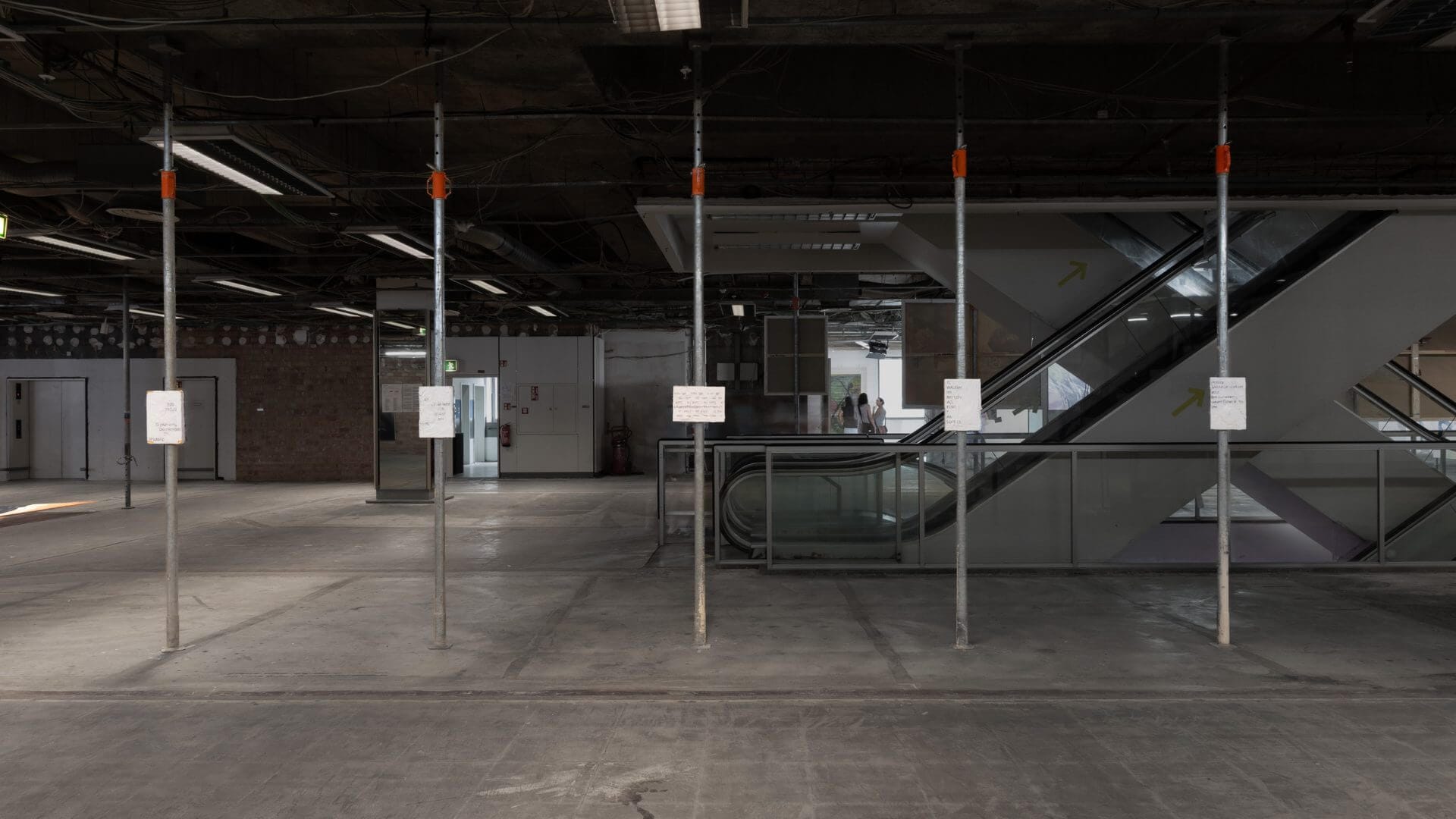
K.T. Kobel, CLOSED VIEWS at Projectspace 38 / 40, Amsterdam
“CLOSED VIEWS” by K.T. Kobel, curated by Pim Lamme, at Projectspace 38 / 40, Amsterdam, 01/06/2024 – 15/06/2024.
There is something uncanny about KT Kobel’s works – the artist depicts scenes which feel at once familiar and unsettling. Like a half-remembered dream or a story you heard long ago, the meaning is always out of reach, not quite graspable. The title of his exhibition at Semester9, Closed Views, the artist’s first solo exhibition in Amsterdam, reflects this ungraspable-ness. When we look back at our past, no matter how clear our recollections may seem, something is always being obscured. Our minds play a game of smoke and mirrors, perhaps in an effort to protect us from trauma in our past, or just due to biological fallibility.
Curtains, a continual motif in this new body of work act as a visual reminder to this obfuscation. What is being hidden when we try to remember, what will our minds keep separate from our present? In one work from Kobel’s new series, a woman stands in a doorway, bathed in a blue light. Her cropped hair, red lipstick, and fur stole suggest she may be from a different era. A cool blue, eerie light washes over the scene, we can assume it’s nighttime or very early morning, a stillness fills the air.
The colours are heightened, camp, cinematic. Her startled face is half turned towards the viewer, and her eyes are searching for something beyond the picture plane, the painting is still, we look on with bated breath, there is a sense that something is about to happen, although it is unclear just what. The colour palette and subject matter is reminiscent of a horror film, her expression suggests a shocked, fearful shallow breath – a person unsure of what is coming next, what is around the corner.
These formal characteristics give Kobel’s work a familiar feeling, a cinematic quality which makes me wonder if I have seen this scene before. Rather than depicting memories, KT’s works depict the act of remembering itself. Recent scientific developments in the study of memory show that when we remember something from our past, rather than visualising the actual event, we visualise our most recent memory of it. As such, our memories are not so much truthful to our original recollection but rather a layered, shifting web of narrative which becomes increasingly distorted with each recollection. This revelation, which disconcertingly suggests that we have less tethering us to our pasts than we like to think, simultaneously offers ground for new possibilities.
These new developments in the study of memory have been posited as providing new opportunities to those who have experienced trauma, giving people the ability to take control of the narrative of their memories, and thus reframe the narrative of their own history. Rather than totally rewrite their memories, doctors believe these developments in memory studies can help patients reframe them, re-remembering traumatic instances from different perspectives. While memories are intangible and illusive, images are static, and yet neither convey an objective truth.
All images – photographs or paintings – are representations, rather than realities. But static depiction always involves some form of decontextualisation, some element of removing a moment from time, place and dimension, thus rendering it unreliable and full of biases.
The close-cropped compositions in Kobel’s work seek to emphasise this, to decontextualise images from their surroundings, expanding their room for interpretation and recontextualisation. Returning to Kobel’s work, what can we see differently? The works depict this tipping point in remembering, conveying narratives which have the potential to go in a multitude of directions. They offer room for rich interpretation, presenting a moment of stillness which is full of possibility. We, the viewer, have the power to interpret their actions, to decide where the narrative will go.








fakewhale
Founded in 2021, Fakewhale advocates the digital art market's evolution. Viewing NFT technology as a container for art, and leveraging the expansive scope of digital culture, Fakewhale strives to shape a new ecosystem in which art and technology become the starting point, rather than the final destination.
You may also like
Softimage, On the Threshold of the Visible and the Simulated
Perspective by Softimage (Katja Breder, Viola Del Monte, Hannes Hochmuth, Lara Jordan, Luka Keresman
Cory Arcangel: The Artist Rewriting the Codes of Digital Culture
Cory Arcangel, born in Buffalo, New York, in 1978, emerges as a pioneer in the digital art landscape
The Sigg Art Foundation: Curating Global Cultural Synergies
In the contemporary art world, a nuanced evolution is taking place as artists quietly yet assertivel




